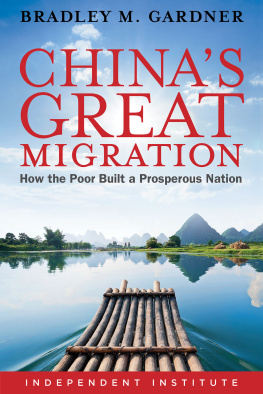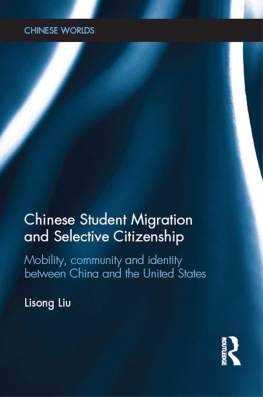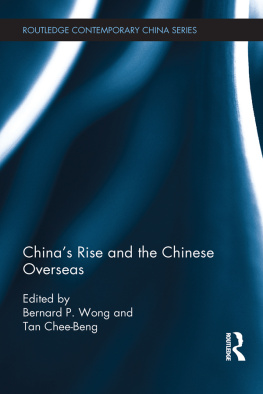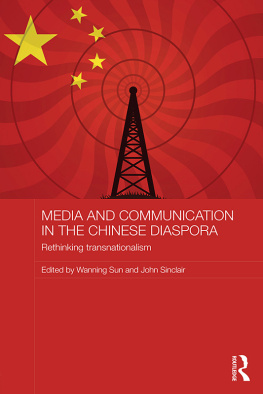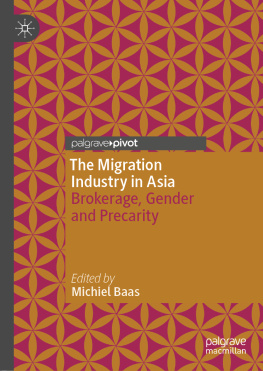
First published 2002 by Ashgate Publishing
Reissued 2019 by Routledge
2 Park Square, Milton Park, Abingdon, Oxon, 0X14 4RN
52 Vanderbilt Avenue, New York, NY 10017
Routledge is an imprint of the Taylor & Francis Group, an informa business
Copyright 2002, Pl Nyri and Igor Saveliev
All rights reserved. No part of this book may be reprinted or reproduced or utilised in any form or by any electronic, mechanical, or other means, now known or hereafter invented, including photocopying and recording, or in any information storage or retrieval system, without permission in writing from the publishers.
Notice:
Product or corporate names may be trademarks or registered trademarks, and are used only for identification and explanation without intent to infringe.
Publishers Note
The publisher has gone to great lengths to ensure the quality of this reprint but points out that some imperfections in the original copies may be apparent.
Disclaimer
The publisher has made every effort to trace copyright holders and welcomes correspondence from those they have been unable to contact.
A Library of Congress record exists under LC control number: 2002100896
ISBN 13: 978-1-138-72220-0 (hbk)
ISBN 13: 978-1-315-19369-4 (ebk)
Contents
Igor R. Saveliev
H. Richard Friman
Anatolii M. Shkurkin
Vilya G. Gelbras
Bertil Lintner
Daojiong Zha
Cheng Xi
Li Minghuan
Mika Toyota
Pl Nyri
Pl Nyri
Go Bon Juan
Pl Nyri
Cheng Xi is Associate Researcher at the Institute for Overseas Chinese History of the All-China Federation of Returned Overseas Chinese in Peking and editor of Overseas Chinese History Studies.
James K. Chin, formerly a lecturer at Xiamen University, received his PhD at Hong Kong University. He is Research Officer at the Centre for Asian Studies of Hong Kong University.
Penny Edwards was the liaison officer of the UN Transitional Authority in Cambodia (UNTAC) responsible for contacts with Cambodian Chinese. She is a research fellow at the Centre for Cross-Cultural Research at Australian National University.
H. Richard Friman is Professor and Chairman in the Department of Political Science, Marquette University.
Vilya G Gelbras is Professor at the Institute of Asian and African Studies, Moscow State University.
Go Bon Juan is Vice President for Research of the Kaisa Para Sa Kaunlaran, a Manila NGO for the promotion of Philippine Chinese culture.
Bertil Lintner is the Burma correspondent of the Far Eastern Economic Review. He is the first Westerner since the 1960s to have travelled through highland Burma which was in a state of insurgency.
Li Minghuan is Professor in the Department of History of Xiamen University, Amoy, China. Her doctoral dissertation on the Chinese in the Netherlands, defended at the State University of Leiden, the Netherlands, was published by Leiden University Press (1999).
Pal Nyri received his Ph.D. in Chinese history from the Institute of Asian and African Studies, Moscow State University, in 1998. His dissertation research was published with the title New Chinese Migrants in Europe by Ashgate (Aldershot: 1999). He is Senior Fellow at the Humanities Center,
Central European University, Budapest, and migration expert of the Hungarian Parliamentary Commissioner for Civil Rights.
Marc Paul is founder and director of A.S.L.C., an NGO assisting Chinese migrants in the Belleville district of Paris.
Igor R. Saveliev is Associate Professor at Niigata University, Japan. He received his Ph.D. in Japanese history from Saint Petersburg State University in 1995. His dissertation research was published with the title Iapontsy za okeanom: Istoriia iaponskoi emigratsii v Severnuiu i Iuznuiu Ameriku (The Japanese across the Pacific: a History of Japanese Emigration to North and South America) in 1997 (St. Petersburg: St. Petersburg Center for Oriental Studies).
Anatolii M. Shkurkin is Head Scientist at the Institute for Complex Regional Problems, Far Eastern Division, Russian Academy of Sciences, Birobidzhan, Russia.
Mika Toyota is Lecturer at the University of Hull.
Daojiong Zha is Assistant Professor and Associate Dean of the Graduate School of International Relations, International University of Japan. He guest-edited special issues of Political Science (New Zealand, Summer 1997) on the interplay between Western social lcience and Assan ssudies sn Asia, and East Asia (Rutgers) on globalization and local governments in East Asia.
This book grew out of the workshop The past decade of migration from the Peoples Republic of China which was sponsored by the Asia Committee of the European Science Foundation and the Economic and Social Research Council (UK) and held in Budapest on 2627 May 2000. The workshop included participants from 14 countries in Europe, Asia and North America.
The original idea behind this workshop was to bring together academics from different fields (anthropologists, sociologists, demographers) and regions as well as some journalists who have researched migration from the PRC into Europe, Northeast Asia (Russia and Japan), and Southeast Asia. The aim was to piece together disjointed and partly unpublished empirical knowledge, and to analyse this along with the help of renowned migration scholars. In doing so, we also took into account forms of migration traditionally excluded from discussion, namely the movements of students and tourists.
The editors would like to thank all participants of the workshop. We are particularly indebted to our hosts, the Director and staff of the Institute of Sociology, Hungarian Academy of Sciences.
In preparing this book manuscript, the editors attempted to preserve the diversity of the opinions and perspectives that were revealed at the workshop and to broaden the framework by inviting contributors who had not been among the conference participants. The studies are presented from a variety of vantage points and methodological apparatuses; some follow local traditions of scholarship rather than dominant Anglo-Saxon discourses of social science. A certain heterogeneity is thus inevitable, and while it was desirable at the workshop we sought to reduce, but could not altogether eliminate, it in the book. Nonetheless, we believe that the chapters when read together, point towards a new understanding of Chinese migration as a global phenomenon with globally inscribed, and competing, meanings.
The editors are deeply indebted to Adam J. Clulow who completed the index and greatly improved the manuscript by clearing it of all kinds of errors.
The editors are especially grateful to the Asia Committee of the European Science Foundation, which provided financial support for the publication of this book.
P Ny. and I. S.
Chinese words are represented in pinyin, Chinese and Japanese surnames precede given names. Russian words are transliterated by the Library of Congress system. For well-known names and words the conventional spelling is used.
Igor R. Saveliev
There still exists a fundamental contradiction between the rights of every individual to seek refuge from persecution, or in a broader context from human rights abuses, poverty, and oppression, in other countries, as stipulated in Article 14 of the Universal Declaration of Human Rights, and immigration policies of developed countries restricting the flow of asylum-seekers and other migrants. As it is difficult to anticipate that this contradiction will be solved in the near future and as the split of the world into rich developed and poor developing worlds inevitably entails continued migration from the latter to the former, international scholarship on migration continues to illuminate modern trends of this migration with the vague objective of exploring how migration could affect receiving societies and accelerate the globalisation process. In this regard, this volume attempts to illuminate relatively new trends and directions of Chinese migration, especially concentrating on elusive patterns of migration, when a migrant may have the double identity of a student and an illegal worker or petty entrepreneur, and by discussing the place of the migrant in the polities of both sending and receiving countries. This introduction aims to outline new directions of Chinese migration, showing the increasing diversification of the overseas Chinese world; and to briefly discuss the relationships between nation-states and the Chinese diaspora.



